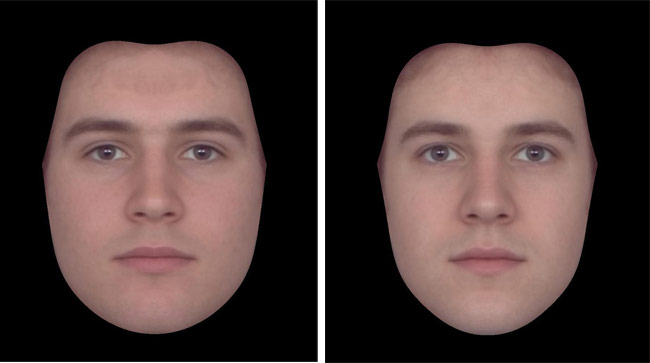Why Women Prefer 'Chill' Guys

Women generally find calm, collected men more attractive, and scientists now suggest they know the biology of why that is.
Investigations into what makes men desirable often focus on testosterone. The hormone is linked with masculine facial traits, such as larger jaws and heavier brows, and is typically associated with better long-term health. As such, it might at first glance make sense from an evolutionary point of view if women found testosterone-laden men especially attractive.
However, past studies have often revealed that men with high testosterone levels are not automatically appealing to women, who view such testosterone-laden men as having long-term drawbacks. For instance, the macho guys may lead a "player's" lifestyle, or may also be bad parents.
Instead, human behavioral ecologist Fhionna Moore at the University of Abertay Dundee in Scotland and her colleagues focused on the stress-linked hormone cortisol. Persistently high levels of cortisol can suppress not just the immune system, but also reproductive function. As such, it would make sense if women preferred men with low cortisol levels — that is, those who are not stressed out.
Cool customers win out
First, scientists recruited 39 healthy young male students from the same university and measured their cortisol and testosterone levels from saliva samples they provided. The researchers next had 42 straight female students from a different university rate photos of these men for attractiveness, masculinity and health.
Men with low cortisol levels were often rated as more attractive than guys with high cortisol levels. Testosterone levels were not significantly linked with attractiveness, masculinity or health.
Get the world’s most fascinating discoveries delivered straight to your inbox.
For a more complex study, the scientists took the 39 male faces from their initial work and split them into four groups — high-testosterone and high-cortisol; high-testosterone and low-cortisol; low-testosterone and high-cortisol; low-testosterone and low-cortisol. Within each group, all the faces were blended together to help make one composite image. In this way, Moore and her colleagues hoped to see what effects combinations of different hormone levels might have on attractiveness.
The researchers also had 43 heterosexual female university students look at the composite images at times both inside and outside the fertile phases of their menstrual cycles. This enabled the scientists to see what effects female hormones and fertility might have on perceptions of male desirability.
When women were in the fertile phase of their menstrual cycle — that is, when they were more likely to get pregnant — those men with low cortisol levels (so were likely more chill) were seen as more attractive than men with high cortisol levels. Past research suggests that when women are most fertile, they tend to judge men on traits that might best benefit any potential offspring in the long-term, and the scientists noted that a person's general cortisol levels are heritable.
"We speculate, then, that males with low cortisol possess something desirable that women seek to secure for their offspring," Moore said. "This could be, for example, good health or a healthy response to stress."
Good partners
The results were considerably more complex when women were not in the fertile phase of their menstrual cycle. In those cases, male faces linked either with high levels of both cortisol and testosterone or low levels of both hormones were rated as more attractive than faces associated with high levels of one and low levels of the other.
Prior studies suggest that when women are not in their fertile phase, "we tend to interpret women's preferences as reflecting those for cues to the characteristics that make a man a good long-term partner," Moore told LiveScience.
In this light, men who are healthy or good providers might be important to women not in their fertile phase. "I can speculate that high-testosterone, high-cortisol levels may signal someone who is dominant and may make a good provider — high testosterone is certainly likely to be related to this," Moore said. "Someone with low-testosterone, low-cortisol levels may be someone with good current health."
The scientists will detail their findings online Sept. 15 in the Proceedings of the Royal Society B.
10 Things Every Woman Should Know About a Man’s Brain



